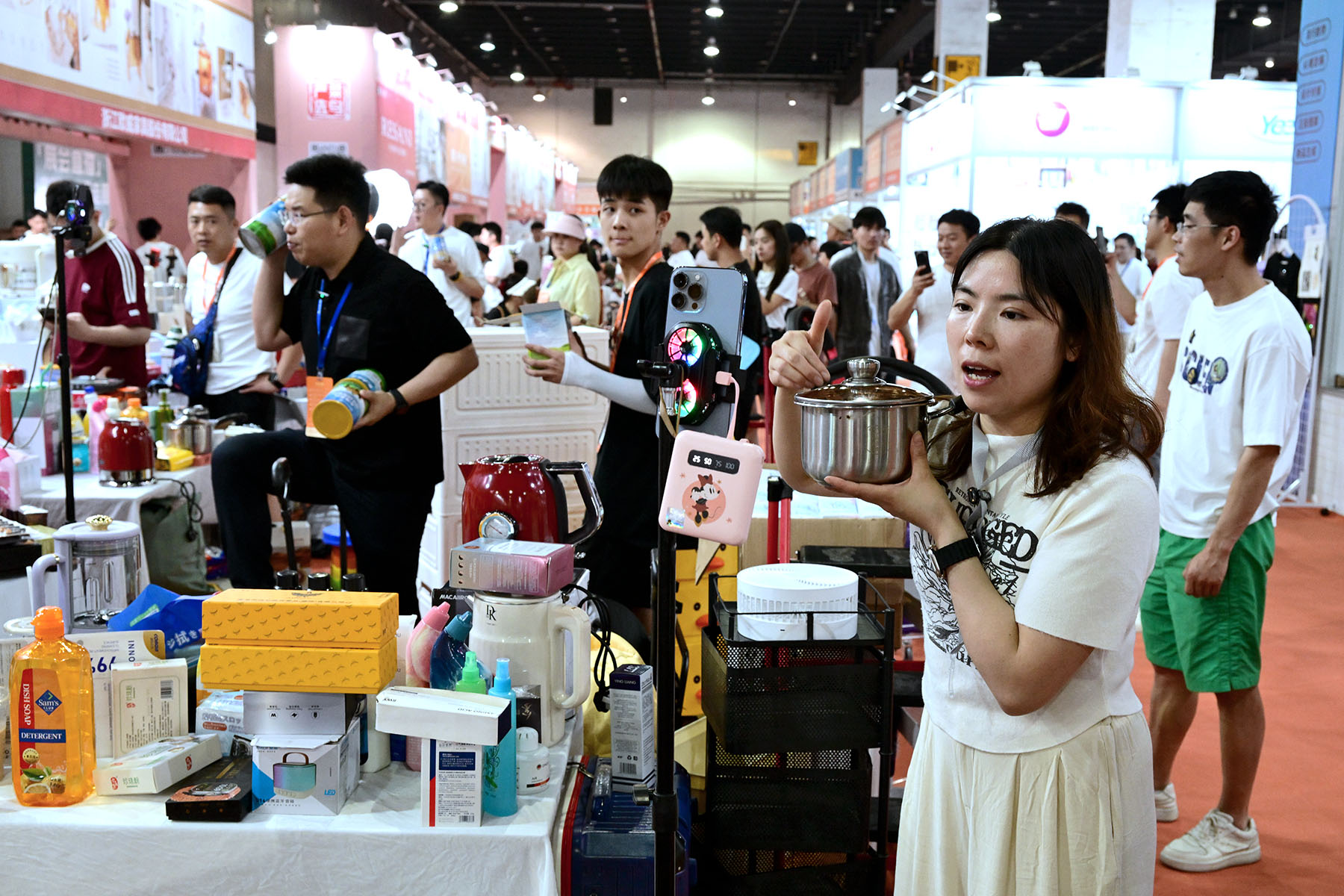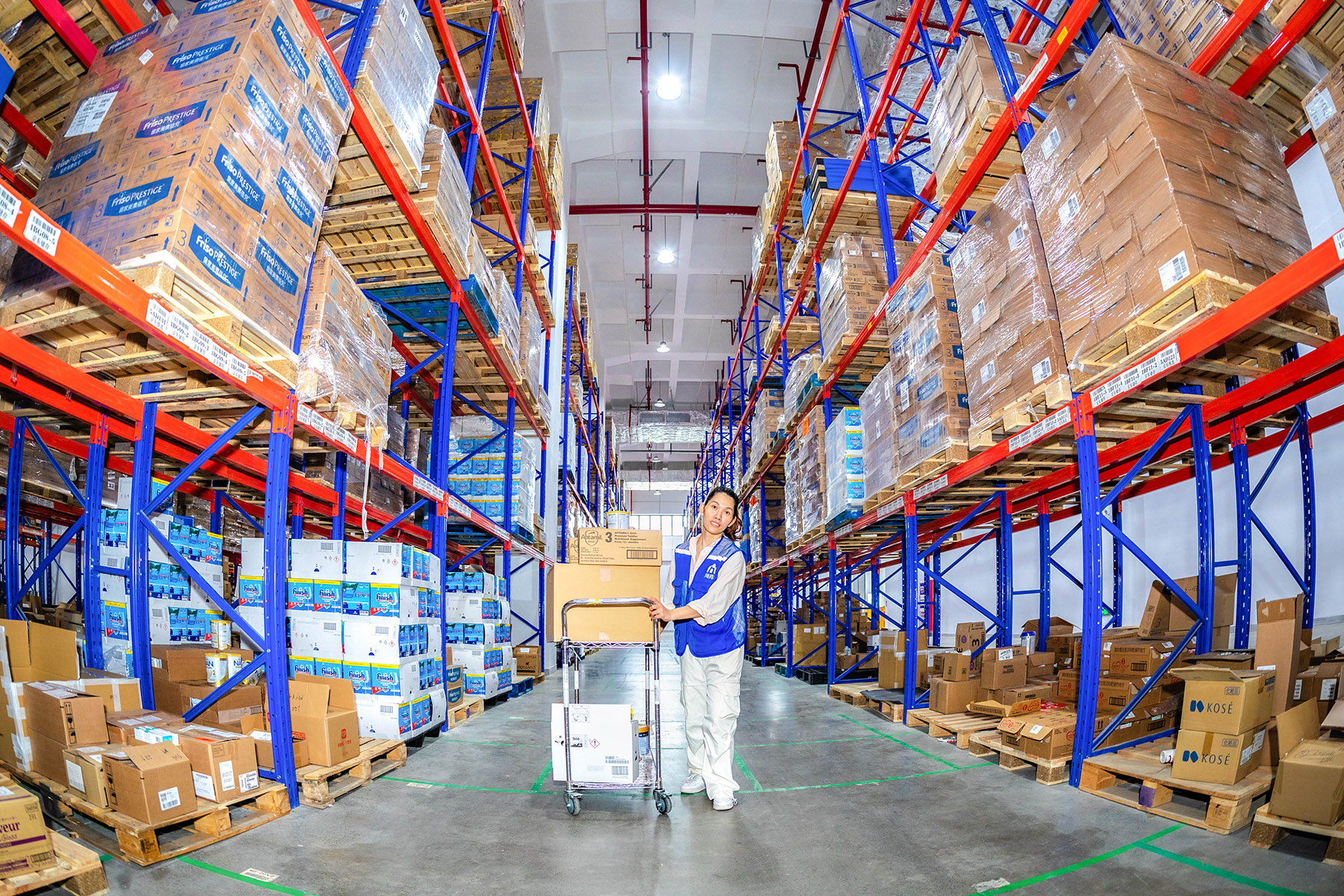Manufacturing capability, digital acumen of online marketplaces converge to foster innovative growth

Manufacturers of household cleaning products in Bazhou in North China's Hebei province are experiencing a surge of youthful energy, fueled by a wave of individuals armed with digital marketing skills on platforms such as Douyin and Kuaishou.
In a notable shift from the past, these newcomers are not interested in establishing their own factories but are seeking partnerships with existing units, drawn to the city's thriving industrial cluster.
By collaborating with these factories, they gain access to a reliable and diverse supply of high-quality products that they can promote through online marketing channels.
This change has injected fresh enthusiasm and a newfound vibrancy into the household cleaning products industry in Bazhou.
The factories benefit from increased exposure and sales, while the talented youngsters gain a competitive edge by offering a wide range of high-quality products to their online customer base, said Li Shifan, general manager of Jamil Household Products Co.
Over the past two years, as e-commerce platforms have battled to offer the lowest prices, businesses within industrial clusters like Bazhou have gradually emerged as key players in reshaping the supply chains within online marketplaces by providing high value-for-money products.
Industrial clusters refer to a mass of manufacturers within specific geographic regions, where industries coexist and collaborate closely to streamline production processes, optimize supply chains, and enhance overall quality and cost-effectiveness.
Their high-quality and affordable products often benefit from the synergistic effects of concentrated expertise, economies of scale, and efficient resource utilization.
A list released by Alibaba's Taobao and Tmall Group in January unveiled 50 industrial clusters, each of which boasted a combined transaction value exceeding 10 billion yuan ($1.38 billion) on Taobao, Tmall, and 1688 platforms.
Spanning 21 cities, including Hangzhou, Jinhua and Jiaxing in Zhejiang province, Guangzhou and Foshan in Guangdong province, and Hebei's Baoding, these industrial clusters encompass 27 product categories, ranging from women's apparel, home furniture, smartphones, beauty and skin care products, to jewelry.
The convergence of local manufacturing capability and the digital acumen of online marketplaces has fostered a symbiotic relationship that drives innovation and growth in a mutually reinforcing way, said Li Mingtao, head of the research institute at the China International Electronic Commerce Center.

In response to the escalating price competition in the e-commerce sector, platforms such as JD and Douyin launched initiatives in 2022 to facilitate the integration of industrial clusters into the digital economy.
This year, Kuaishou has prioritized greater involvement in empowering industrial clusters so as to better meet the growing demand for reasonably priced, yet superior quality goods.
In return, businesses within clusters are recognizing the immense potential of e-commerce platforms in expanding their reach and accessing a broader consumer base.
READ MORE: China's online retail sales up 11.5% in January-April period
"Today's consumers are increasingly turning to online channels for their shopping needs, seeking convenience, variety, and competitive prices. By joining e-commerce platforms, industrial cluster businesses can meet these evolving consumer demands and establish a direct connection with their target audience," Li said.
Caoxian county, located in Shandong province, has leveraged the vast user base and support programs of livestreaming platforms such as Douyin to foster a complete industrial chain of hanfu, the traditional attire of the Han ethnic group.
With a total of 2,473 upstream and downstream enterprises dedicated to hanfu production, the online sales of hanfu reached 7.2 billion yuan last year, marking a year-on-year growth of 44.3 percent. The combined online and offline sales exceeded 10 billion yuan, accounting for over 40 percent of the national market.
In the first five months of this year, online retail sales of hanfu in Caoxian amounted to 2.9 billion yuan, representing a year-on-year growth of 8.6 percent.
An Peng, general manager of a hanfu manufacturer in Caoxian, said the company purchased six jacquard looms to weave complicated patterns — a key procedure in the creation of hanfu garments. Along with four old ones, these machines have been operating continuously, with workers operating in two shifts to maximize production efficiency, he said.
Walk down any street, and it is hard not to miss the storefronts dedicated to different stages of hanfu production, An said.
These workshops, featuring embroidery, pattern-making, pleating, ironing, packaging and more, have divided each aspect of hanfu production into separate work disciplines, he added.
The hanfu industrial clusters in Caoxian are flourishing, thanks to e-commerce platforms that have revolutionized the way businesses engage with consumers and showcase their products.
The platforms' abilities to attract a vast audience, create immersive shopping experiences, and facilitate direct interactions between producers and consumers have been instrumental in the success of the industry, resulting in the establishment of a comprehensive value chain that encompasses every aspect of hanfu production, said Zhu Keli, founding director of the China Institute of New Economy.
The rapid development of the industrial cluster in Caoxian has boosted e-commerce startups and job creating ventures. The e-commerce sector alone has given rise to 350,000 jobs, among which more than 50,000 are returnees who have chosen to start businesses in their hometowns.
The shift toward e-commerce within the industrial belt is a response to the changing market dynamics and the evolving consumer preferences, said Zhang Zhouping, a senior analyst on business-to-business and cross-border activities at the Internet Economy Institute.
As e-commerce platforms continue to gain traction in various sectors, traditional brick-and-mortar factories have experienced a decline in their offline sales. The convenience and accessibility of e-commerce platforms provide a viable solution for factories within the industrial belt to expand their market reach and increase sales, Zhang said.
ALSO READ: AI-powered livestreaming rivalries heating up
By embracing e-commerce, factories can overcome geographical limitations, tap into new markets, and cater to the evolving demands of online consumers. This transition enables them to diversify their distribution channels and remain competitive in an increasingly digital marketplace, Zhang added.
During this year's June 18 shopping carnival, which kicked off on May 31, businesses within industrial clusters operating on JD experienced a 260 percent increase in order volume compared to the same period in the previous month.
Moreover, e-commerce platforms have been actively introducing a range of incentives and support measures to encourage industrial-cluster businesses to facilitate their entry into the e-commerce arena, Zhang said.
From logistics support to marketing guidance, the supportive policies and assistance provided by e-commerce platforms have empowered industrial belt businesses to overcome challenges associated with online operations and maximize their online potential, Zhang added.
Contrary to the perception of the industrial belt as a hub for cheap manufacturing and outsourcing, it has emerged as an opportunity-filled landscape for domestic entrepreneurship and brand creation. The industrial belt has become the largest source of new brands on Tmall, accounting for over 40 percent of the platform's new merchants, according to a report by Taobao and Tmall Group.



